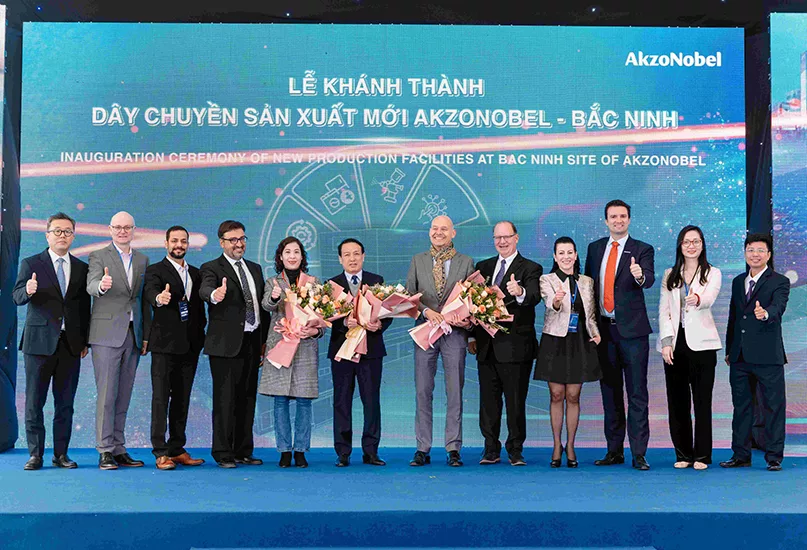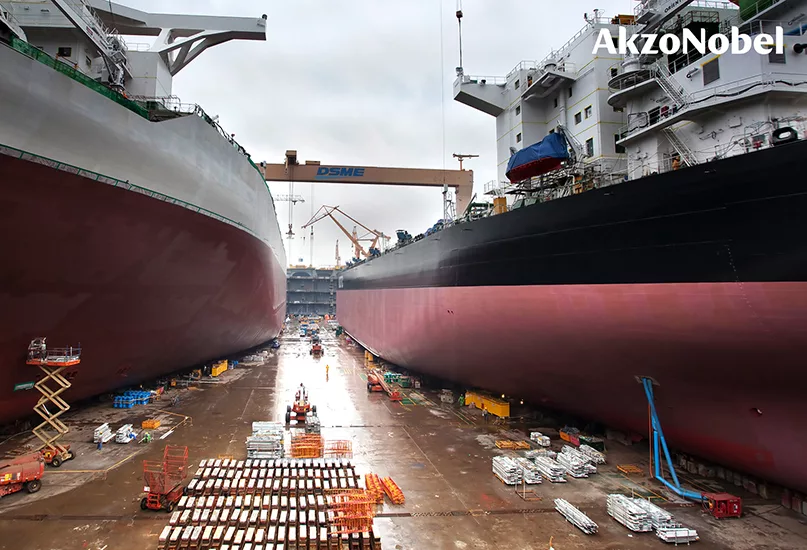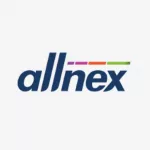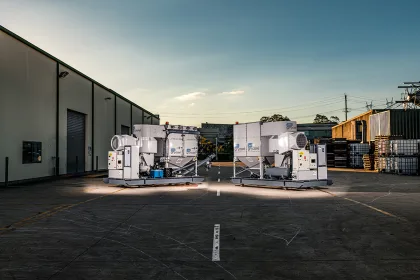At the helm of some of the biggest paints and coating brands in the world, we explore AkzoNobel’s unwavering commitment to sustainability and forward-thinking paint products with Global Product Management Director, Pamela Phua.
GLOBAL PAINT AND COATING PIONEERS
Bringing surfaces to life for over two centuries, AkzoNobel is positioned at the forefront of paint and performance coatings industry, supplying an innovative portfolio of advanced products and comprehensive services to customers in over 150 countries.
“Since our establishment in 1792, we’ve been colouring people’s lives and protecting what matters with powerful layers of paint through our portfolio of brands including Dulux, International Paint, Sikkens, and Interpon,” introduces Pamela Phua, Global Product Management Director at AkzoNobel.
The company is present across almost all common surfaces of everyday life, from houses, buildings, electronics equipment, and wooden furniture to vehicles, aircraft, and even spacecraft.
As such, AkzoNobel designs coating products with cutting-edge technologies based on sustainability-driven innovation to provide pioneering solutions, superior quality, and unparalleled customer service.
With a background in the industrial chemicals industry, Phua is deeply passionate about AkzoNobel’s success and is eager to develop advanced paint products with outstanding features.
She began her career in the sector 19 years ago in the area of paints and coatings R&D, before transitioning into business leadership roles in regional clusters covering emerging markets such as Vietnam, Singapore, and Indochina.
This value-adding experience and deep technical expertise led Phua to take on the role of Global Product Management Director at AkzoNobel this year, driving innovation and sustainability across the business.
“This encompasses the strategic management and execution of initiatives aimed at integrating industry-leading innovations and sustainable practices across our organisation’s global operations.
“My role is critical in ensuring that the company not only meets its business objectives but also fulfils its environmental and social responsibilities,” she affirms.
Through continuous improvement and innovation, AkzoNobel consistently discovers and leverages new possibilities within its paints and coatings offerings that exceed customer expectations.
“The company’s exceptional products, coupled with our passion, dedication, and drive for excellence, have deepened my love for both AkzoNobel and the building materials industry as a whole,” she adds.
“The company’s exceptional products, coupled with our passion, dedication, and drive for excellence, have deepened my love for both AkzoNobel and the building materials industry as a whole”
Pamela Phua, Global Product Management Director, AkzoNobel

STRATEGIC ACQUISITION AND INNOVATION
Driven by a passion for paints and coatings, AkzoNobel continuously seeks innovative strategies to enhance the quality of its solutions and services across its existing markets while exploring opportunities for global expansion.
As such, the company has forged strategic partnerships over previous decades through acquisitions of renowned paints and coating brands worldwide, including BASF, Fabryo Corporation, and most recently, Sherwin-Williams.
“These collaborations, built on shared values and a mutual love for paint, have propelled our growth and enabled us to consistently achieve our business targets,” shares Phua.
Currently, AkzoNobel maintains 140 manufacturing sites serving four business units. To ensure a seamless supply chain of partnerships, the company also recently launched an industrial excellence programme to transform its logistical network, which AkzoNobel hopes to reap the full benefits of by 2027.
The programme focuses on reducing complexity, enhancing productivity, and optimising the supply chain through the investment and modernisation of its anchor sites. Consequently, it aims to deliver cost reduction, enhanced efficiency, improved service levels, and heightened overall competitiveness.
Meanwhile, the company’s latest upgrades to its manufacturing sites use intelligent digital technologies and advanced security management to customise storage and operation modes for different product categories.
“These improvements are critical to positioning us in the best place to meet the steady growth in demand that is expected over the next decade,” expands Phua.
COLLECTIVE DECARBONISATION
Renowned worldwide for its products and services, AkzoNobel highly appreciates and prioritises diversity.
Therefore, its international partnerships enable the company to leverage local resources to provide better insight into potential product improvement.
“We welcome partners and suppliers from all over the world and respect their shared vision in passion, purpose, and quality,” informs Phua.
As a result, AkzoNobel achieves more customer-orientated solutions, enhances identity across its product portfolio, and supports the development of local communities.
In return, the company expects premium quality from its suppliers, who must agree to certify their quality assurance systems and change management processes to ISO 9001 standards or the equivalent quality management system (QMS).
Moreover, collaborations with value chain partners are also key to collectively decarbonising the industry. Therefore, the company accurately monitors and manages the environmental impact of its suppliers and customers.
For example, amongst AkzoNobel’s paints and coatings products and services, more than 98 percent of its carbon footprint results from upstream supplier and downstream customer activities.
Regarding the former, the business recognises that its greatest environmental impact is caused by raw materials such as pigments, resins, and solvents. Consequently, AkzoNobel has joined forces with suppliers to drive the use of bio-based resources, recycled content, and raw materials produced by renewable energy.
“We closely monitor the cradle-to-grave lifecycle of our raw materials and finished products to reduce volatile organic compounds (VOCs), transportation impacts, and other environmental fallouts,” Phua asserts.
In aid of this objective, the company has implemented its Supplier Sustainability Framework, which includes assessments, surveys, and audits of its high-risk suppliers, classified as having to take remediating actions to reduce carbon emissions.
As such, the framework is designed to identify and evaluate eco-friendly practices in the supply chain and hold accountable organisations that are not acting accordingly.

“We take our responsibility to reduce the carbon footprint of paints and coatings in our urban environment seriously, and we are committed to applying these lessons throughout the supply chain to address both energy use and air quality”
Pamela Phua, Global Product Management Director, AkzoNobel
SUPPORTING WORLDWIDE INDUSTRIES
Possessing a global and dominant reach across the paints and coatings sector, AkzoNobel never stops exploring and seeking new and exciting ways to turn the wheels of the myriad industries it permeates.
Even though each sector that the company operates in presents unique characteristics, demands, and trends, sustainability once again remains a common focus across its operations.
“Sustainability is embraced across our product features and technologies, as well as the values we deliver to our customers,” prides Phua.
For example, the metal packaging and construction industries both require products that meet stringent requirements and long-term regulatory compliance.
Elsewhere, utilising safe, non-toxic materials is the first priority when serving the packaging and beverage industry.
Recognising and understanding this critical need, AkzoNobel introduced Aqualure G1 50 and Accelstyle™ 100 – the latest generation of coatings technology that is compliant with Food and Drug Administration (FDA) and European Union (EU) regulations.
As a result, beverage can manufacturers are able to offer products with surfaces free of harmful chemicals such as bisphenol A, styrene, and other per- and polyfluoroalkyl substances (PFAS).
By utilising these new products, manufacturers can switch to packaging coatings that do not contain dangerous substances whilst maintaining commercial viability.
In the architecture and construction industry, meanwhile, quality and efficiency are paramount.
“Our focus when developing solutions for this sector is on technologies that enhance durability and reduce energy consumption but still maintain cost efficiency,” divulges Phua.
Indeed, AkzoNobel’s introduction of Dulux’s Weathershield Keep Cool™ technology and Interpon’s D1036 Low-E, an industry-first low energy powder coating, aptly demonstrate this commitment.
In line with the company’s many innovations in its product line and supplier networks, AkzoNobel strives to spread its presence further across Asia as a key market contributing nearly 30 percent of the organisation’s revenue.
The continent has become a major focus for AkzoNobel in recent years, having increased its investment in the region and witnessed the expansion of its production facilities at the Bắc Ninh site in Vietnam as well as the greenfield location in Faisalabad, Pakistan.
With these investments, the company aims to increase its total production capacity to respond to global business partners’ demands and strengthen its market position in Asia.
Almost all of AkzoNobel’s core business units operate across the continent, which illustrates its importance to the organisation.

PAINTING THE FUTURE
AkzoNobel has also expanded its vast product portfolio through Dulux PureAir, a low-VOC, low-sheen finish, high-quality paint that comes with fungus and mould resistance as well as anti-bacterial properties.
As customer health is one of the company’s top concerns, Dulux PureAir helps to continuously remove harmful air pollutants such as formaldehyde, benzene, and other VOCs emitted by everyday items in the home such as carpets, furniture, and construction materials, effectively making the air in one’s home as fresh as the great outdoors.
Additionally, the company’s recent launch of Dulux Better Living Air Clean Biobased is a clear example of its sustainability commitments.
“With natural eco-friendly ingredients, such as bamboo charcoal and special bio-based materials, it’s the first paint solution introduced to the Vietnamese market that is capable of purifying indoor air,” excites Phua.
Alongside its forward-thinking product portfolio, the company is also striving towards sustainable value indicators, which include halving the carbon emissions in its operations and across the entire value chain, as well as reducing, reusing, and recycling materials to achieve 100 percent circular usage.
“Built on a solid foundation of passion and dedication, the R&D team and I have relentlessly pushed the boundaries to create new, high-quality, aesthetically pleasing, safe, and sustainable surface solutions,” Phua concludes.




























